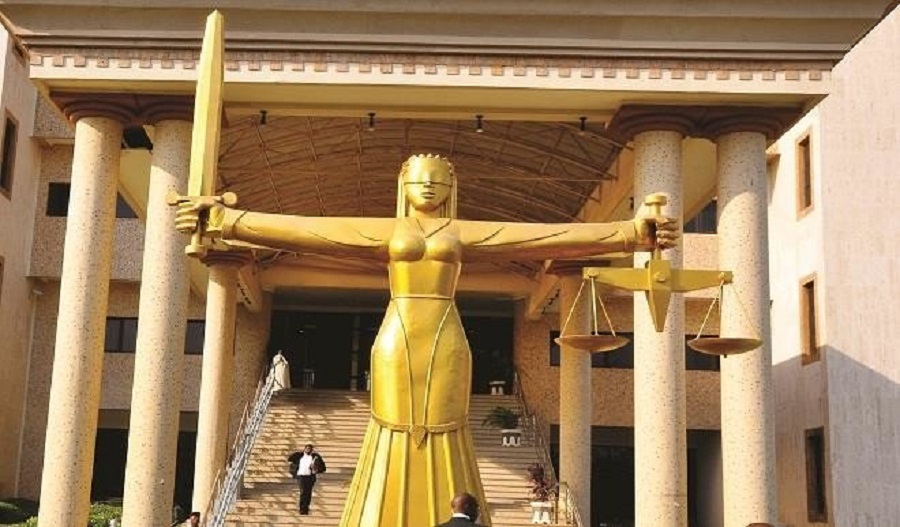A lawsuit is the filing of a complaint seeking legal redress by judicial action. It is a proceeding by a party or parties, institution, agency, body, corporate or the state.
Lawsuits by their nature can either be civil or criminal. Civil suits involve all kinds of disputes that are not crime-related. A civil suit can be commenced either by a claim, writ of summons, originating summons, originating motion/application, or a petition.
Criminal cases involve all kinds of crimes committed against the state or a person. It is commenced by filing a formal complaint, petition, First information report, information or by a Charge.
A lawsuit is commenced by a claim when the nature of the claim is contentious and the litigant fills the plaint form at the registry (or it can be prepared by his lawyer). It is a mode of action commenced in the district courts (magistrate courts, sharia courts, customary courts).
An action can also be commenced by way of originating application in the district courts where the issue is non-contentious. It can be done by filing a form at the courts’ registry or prepared by your lawyer.
A criminal case in the district courts can be commenced by either filing a complaint by the complainant, or arraignment on first information report by the police, by information (information sheet more like a charge) or by a charge prepared by the police.
A civil action before a higher court (High court, Federal High Court or National Industrial Court) is commenced by either a writ of summons where the dispute is contentious, or by an originating summons where the dispute is non-contentious, or by an originating application where the nature of the dispute requires so (mostly required to commence so by statutes), or by a petition where it is required to commence so (issues like divorce, election, administrative).
Other venues where a lawsuit can be commenced especially in civil matters include area courts, native courts and Alkali courts.
A dispute is contentious where the series of events that happened is being contested. A dispute is non-contentious where it is a matter seeking interpretation, application of the law or any matter that the facts of what happened is not being contested. A summons is a formal invitation by the court for a person to appear before it on an appointed date to answer the claim made against him.
A criminal case is commenced before a higher court by way of an information or a charge.
A lawsuit whether civil or criminal is commenced before an appellate court (Court of Appeal or Supreme Court) by filing a notice of appeal. Where a notice of appeal is not filed then there is no appeal. However, where any of the appellate courts is sitting in its original jurisdiction, then it is commenced by an originating summons or a petition or an application.
An appeal is the process in which cases are reviewed by a higher authority, where parties request a formal change to a decision of a lower court.
An appellate court, also known as the court of appeal is a court of law that is empowered to hear an appeal of a trial court or other lower tribunal (sometimes higher court can sit as an appellate court where there is an appeal from district courts).
The Supreme Court is the apex court.it has original jurisdiction in any dispute between the Federation and a state or between states. It also has appellate jurisdiction to hear and determine appeals from the Court of Appeal.
A supreme court in any jurisdiction is the highest court within the hierarchy of courts. The decisions of a supreme court are not subject to further review by any other court except by itself.
What you should know
- Your form of commencing a suit can either be done directly by going to the courts’ registry to lodge a formal complaint or it can be done by your lawyer.
- Each form of action has a prescribed fee to be paid for it.
- To commence a civil lawsuit, you are required to file a certificate that the dispute cannot be resolved out of court hence the need for the court to entertain it.
- There is a checklist of items to consider before commencing an action. Example: Issue of whether the court has jurisdiction, are you suing the proper parties, is the action statute-barred, is there need for you to serve pre-action notice and if you have complied with all the pre-action protocols etc.
- In recent times, small claims courts have been established to adjudicate issues of liquidated money demand that is not more than N5 million just to simplify the process of resolving disputes.
- Check procedure rules of courts in the court registry as each court has its own procedure rules.
- A write of summons and other forms of commencing an action are filed with all other supporting documents because of the frontloading system.
- Difference in laws may bring about a conflict of laws to apply.
- A suit can be instituted in a place where either of the parties resides, or where a substantial part of the action or transaction occurred.
- Courts Procedure rules provide for mode of commencement of an action.
- If you have a complaint that is civil in nature, your first point of contact is the registry of the court.
- For criminal cases, you file a complaint either at the police station or at the registry.
- The Constitution spells out and sets the limits of a court’s jurisdiction and competence to either try and also impose punishment or try but lack the competence to enforce punishments.
- The court registry will inform a litigant if his/her complaint is within a certain jurisdiction or refer you to the appropriate court.







Thanks for this brief